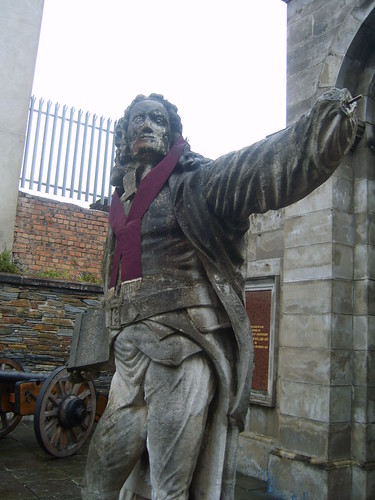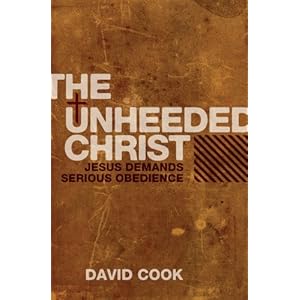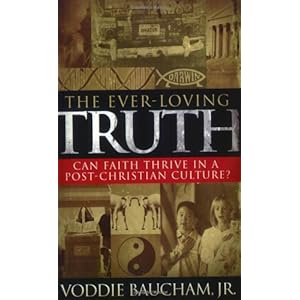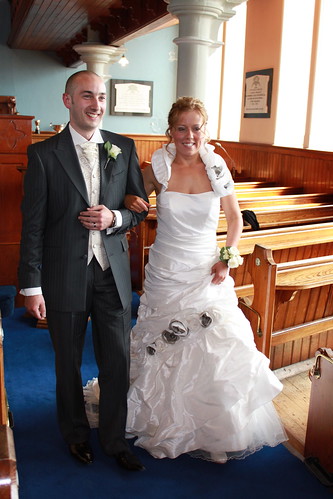It’s the most anticipated night of the year. The venue is ready, the stage is set. Famous people are getting out of stretch limos, the cameras are out, flash bulbs popping along the red carpet. It’s just like the Oscars, or the BBC Sports Personality of the Year Award, except this is the Greatest Christian of the Year Awards. Lots of famous Christians have arrived and take their seats, nervously waiting to see if they’ll get the award this year.
There are bishops and archbishops, politicians, celebrities, each one thinking that they will pull it off and win the Greatest Christian of the Year Award. But there’s a shock when the golden envelope is opened, and no one has ever heard of the winner. In fact, they haven’t even turned up at the venue, too humble to think it could be them. Too busy getting on with the work of serving people in need, reaching people with the good news about Jesus.
While there’s no such thing as the ‘Greatest Christian of the Year Award’ - at least as far as I know of (!) there are probably moments when you would put yourself forward for the title. Running through that list of reasons (at least in your head), and looking down on all those lesser Christians who don’t quite meet your standards. It might seem ludicrous, and yet it probably happens more than you would admit.
You see, it even happened to the first disciples of Jesus. These were the twelve, who spent the most time with Jesus, living, walking, talking, working with him for three years, and one day, as they’re walking along, they indulge in this Christian of the Year award - look at verse 34. ‘They had argued with one another about who was the greatest.’ Not the greatest footballer, or the greatest at tiddliwinks, but the greatest disciple.
You can see them walking along, Jesus out in front leading his disciples towards Capernaum (and ultimately on his way to Jerusalem), and the disciples ‘discussing’, trying to show how they are greater than each other. Each convinced that they are a better disciple than the one next to them.
But Jesus gives them a shock as he teaches about true greatness. We’re going to see what he says under two short headings - 1. The path to greatness begins by knowing the servant king (30-31); 2. The path to greatness is through service (32-37).
So first, the path to greatness is by following the servant king. No matter when we’re reading something from the Bible, we need to see where it fits, both in terms of the book it’s in, and also the Bible as a whole. Mark’s Gospel is one of the four eyewitness accounts of the life, death and resurrection of Jesus, his life story. Here in Mark 9, Jesus has been with the twelve disciples for around two and a half years, and they’ve seen him teaching the crowds, healing the sick, calming the wind and the waves, feeding over 5000 hungry people with a few loaves and a few small fish, and many other miracles.
Having seen all these things, the disciples are slowly coming to realise who Jesus is - the Son of God, God’s King promised from long ago. Now that they know who Jesus is, he moves to the next stage of his mission, and he’s on the way to Jerusalem. Once already, he has predicted what will happen to him (we saw that in 8:31). Look at verse 31. Jesus is teaching his disciples, and here’s what he says to them: ‘The Son of Man (that’s a title for Jesus) is going to be delivered into the hands of men, and they will kill him. And when he is killed, after three days he will rise.’
Long before it happens, Jesus is able to say what will happen when he gets to Jerusalem. He will be arrested, tried, crucified, and killed. Jesus, the Son of God, will give up his life for us. Jesus, the one who created all things, the one whom angels praised, the one who was seated in heaven, yet he gave up all that to come to this earth to die for us. The apostle Paul writes this in 2 Corinthians: ‘For you know the grace of our Lord Jesus Christ, that though he was rich, yet for your sake he became poor, so that you by his poverty might become rich.’ (2 Cor 8:9)
Jesus, the Son of God came not to be served, but to serve, and to give his life as a ransom for many (Mark 10:45) The first step on the path to being a great disciple is to become a disciple - by seeing what Jesus has done for us - giving up all he had for us, so that we can receive what he has - and trusting in Jesus. It’s what we declared earlier on, as we said what it is we believe about God.
Jesus is talking about how he will shortly die for his disciples, and they still don’t understand. They just don’t get what he’s talking about - so is it any wonder they turn to argue about which of them is the greatest disciple? You see, the fact that Jesus gave his life for us means that Jesus is the truly great one. He is the one who deserves all the praise - we are humbled straight away by seeing what it took for us to be saved, nothing less than the death of the Son of God. Do you know this Jesus today? Have you realised what he did, for you? Have you thanked him for dying in your place? Asked him to save you, so that your sins are removed, so that you can look forward to eternity with him?
The path to greatness begins by knowing the servant king. It’s hardly surprising then that if our king is known as the servant king, that those who follow him are also called to service. 2. The path to greatness is through service. All of us naturally think that the path to greatness is through promoting yourself, putting yourself first - your needs, wants, desires, skills, talents. The pressure to achieve is immense - whether it’s in school exams, or the biggest house, or the best paid job.
But Jesus says that the path to greatness, being a truly great follower of Jesus, is to put everyone else before yourself. ‘If anyone would be first, he must be last of all and servant of all.’ It just sounds so strange to our ears - it’s the opposite of what culture and society and family and friends tell us. If anyone would be first - yes, we all want that! He must be last of all and servant of all. The way to be first is to put yourself last. [It reminds me of a tractor race I recently heard about - it’s all about the slowest tractor over the course, while still moving forward - to win, you have to come last!] To put the needs of others before your own, to serve others. To follow (in other words) the example of the servant king.
Diotrephes may not be a name familiar to you, but he was one of the early Christians, and he’s mentioned in the Bible. Sadly though, it’s not for his devotion, or service, or being a great disciple. Rather John writes ‘Diotrephes, who likes to put himself first, does not acknowledge our authority.’ He likes to put himself first - but he wasn’t doing it the way Jesus says - rather through the way the world does.
It’s completely counter-cultural, but it is the way of Jesus. To consider others better than yourself, to look out for others, to put them ahead of yourself, to serve people.This is the way of the cross.
Jesus then goes on to show an example of what this will look like. He takes a child, puts him in the middle of them, then lifts him in his arms. At this time, children were maybe not even seen and not heard, because they were considered to be the lowest of society, not real full people yet, just children. Yet Jesus serves the child, welcomes him, takes him into his arms. Will we reach out to the lowest, the least, the lost? Jesus’ final words in these verses are a bit surprising, and, to be honest, a little hard to get your head around. I’ve struggled a bit all week with them, because of the amazing truth they reveal.
They are words of grace, and encouragement for us who are called to serve and put the needs of others before our own. They are amazing, because our acts of service are not missed by heaven, they are noticed, and there is great blessing which comes through service.
‘Whoever receives one such child in my name receives me, and whoever receives me, receives not me but him who sent me.’ There’s a lot of receiving there, but let me summarise what Jesus is saying. That whatever we do in Jesus’ name - whatever we do for him, all our acts of service - when we serve others (like this child, like someone who needs our help, like anyone), it’s as if we’re serving Jesus himself - that it’s as if we were welcoming Jesus, but not only that - when we welcome Jesus, we welcome the one who sent Jesus - God the Father himself.
It’s like the parable Jesus tells of the sheep and the goats - ‘Truly I say to you, as you did it to one of the least of these my brothers (that is, a Christian), you did it to me.’ When we serve one another, we are serving Jesus; when we welcome one another, we are welcoming Jesus.
Perhaps today you realise that you’re living for yourself. You desire to be great and pursue that through money, sport, sex, intellect, or whatever it is. You put yourself first in your priorities. Think again about the Lord Jesus, the one who had it all, but gave it all up to give his life for you. The servant king died so that you might live.
Or perhaps you’re a Christian, you’re trusting in Jesus, but want to be known as a great Christian. Stop trying to do that by putting yourself first. Look around at those in need. Serve your brothers and sisters. True greatness is not achieved by the world’s standards - but by knowing the servant king, and following in his ways. ‘If anyone would be first, he must be last of all and servant of all.’
This sermon was preached in St Elizabeth's Church, Dundonald on Sunday 25th July 2010.











